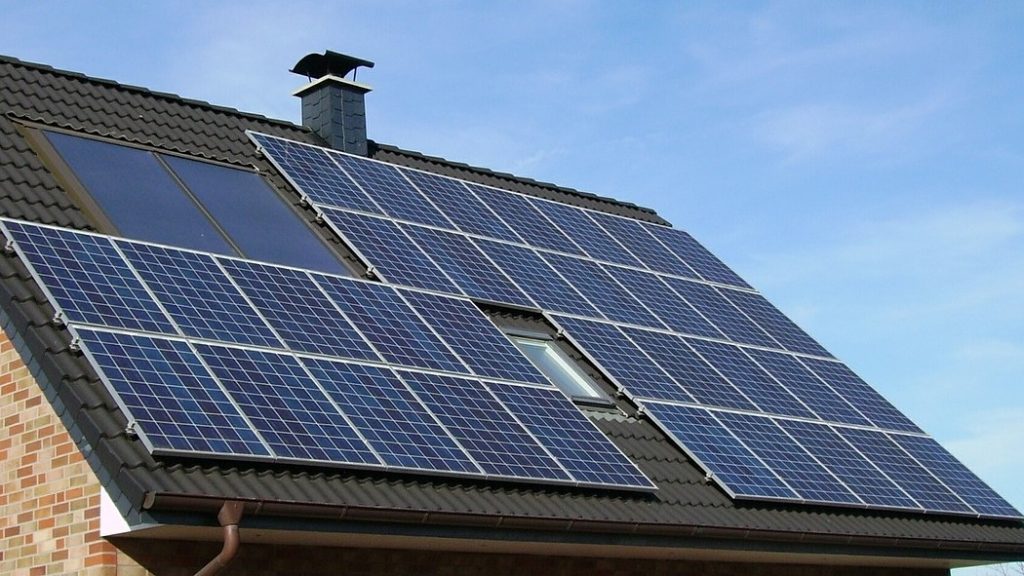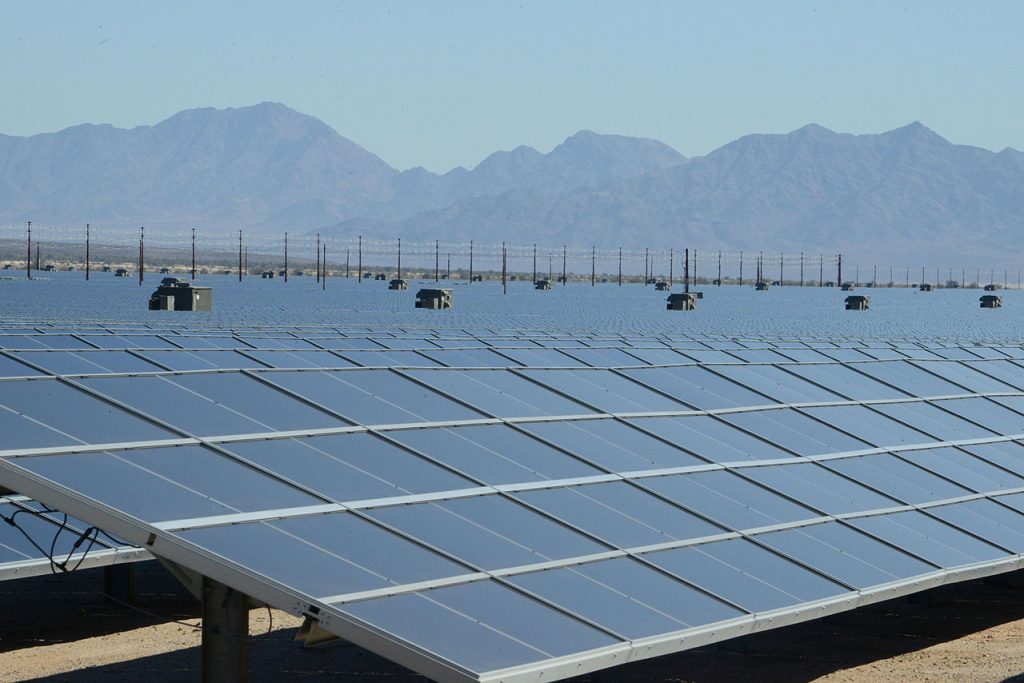Mixed reaction to rooftop solar grant over exclusion of commercial and farm builds

July 31st, 2018
A new domestic rooftop solar grant scheme launched today to mixed reactions from researchers, NGOs and opposition parties who called for urgent additional support for businesses, community groups and farmers.
Launched this morning by the Minister for Climate Action, Denis Naughten TD, the new microgeneration pilot scheme will support individuals to install solar photovoltaic (PV) panels on their homes.
The scheme, which will be administered by the Sustainable Energy Authority of Ireland, will provide a grant of €700/kWp for a solar PV system up to a maximum of 4kWp. A 1kW solar PV system, for example, would require a homeowner to install three or four solar panels on their rooftop.
Any installation over 2kWp must install a battery storage system, with a €1,000 grant now also available for this. Only homes built in 2010 or before will be eligable for the scheme.
Mr Naughten said that the scheme demonstrates the cabinet’s commitment to making “clean energy cheaper and affordable to use”. “Turning your home into a renewable power station is now one step closer,” he said.
The grant is available for new installations immediately and will run until 31st December 2020. The scheme will be reviewed after six months to explore the potential to broaden the scheme to other groups and technologies.
No support to business or community groups
For the moment, however, the pilot does not include a feed-in-tariff (a fixed price paid for electricity exported to the grid) and completely excludes commercial enterprises and community buildings.
While welcoming today’s move as a “small step in the right direction”, the Director of Friends of the Earth Ireland (FOE), Oisin Coghlan, said that the Government has “missed a great opportunity” by not including a feed-in-tariff.
He said that the decision to exclude community buildings such as schools, parish halls and sports halls and farm buildings from the scheme will leave business owners, community groups and farmers to battle it out with large developers through the State’s new auction system in the Renewable Electricity Support Scheme (RESS).
The recently recast Renewable Energy Directive aims to bring the ‘prosumer’ to the heart of new energy policy across the EU. “For once we have an opportunity not to be behind the curve on EU schemes, let’s build immediately on this stopgap measure with a full future-proof scheme,” Mr Coghlan said.

Rooftop Solar Photo: skeeze
Last year, FOE commissioned a cost-benefit analysis by Joseph Curtin, a research fellow at the International and European Affairs, which found that solar panels on homes and businesses can make a significant contribution to Ireland’s switch to clean energy.
The analysis by Mr Curtin, who is also a member of the Climate Change Advisory Council, found that solar power can be easily supported at a reasonable cost for up to on 50,000 homes. A generation tariff of 10 cents per kilowatt of electricity produced would make rooftop solar attractive for householders, the report found.
Speaking to The Green News today, Mr Curtin said that, while any move to support residential solar was welcomed, the choice of a grant-aid system was “unfortunate”. “Grants are short-term fixes, but hopefully after this six-month pilot we can move to a more market-based support scheme that allows residential electricity generators the right to sell electricity to the grid,” he said.
Quentin Gargan of Solartricity, a company that designs and supplies commercial and domestic solar systems, said that it is very disappointing to see that commercial rooftop is “not catered for in any meaningful way” by either the microgeneration scheme or the RESS.
He said that the launch of the new grant scheme, just a week about Cabinet approved the RESS that “kicked rooftop solar out of the running”, is more a publicity stunt than anything else.
Commercial rooftop would be the “quickest and cheapest way to roll out solar” in Ireland, Mr Gargan added. He believes, however, that the “very effective” developer-led solar farm lobby and semi-state ESB have the ear of Mr Naughten on how solar should be rolled out on the island.
Commercial companies can’t afford to install rooftop solar without some form of support for electricity generated by solar panels at weekends while the facilities are not in operation, he said. “The right thing to do is to pay them for their surplus,” he added, calling for a feed-in-tariff as a vital step toward a viable future with rooftop solar.
A grant scheme may also assist in the short-term, he said, as the “very generous” domestic grant now on offer would easily cover up to 80 per cent of the cost of installing the average commercial solar set-up. Without such moves, however, large solar farms will have “gobbled up” all the electricity grid space like in other EU countries, he said. “We are doing this the wrong way around.”

Farmers being left to the wayside
The head of the Irish Farmers’ Association’s renewables team, Tom Short, said that the RESS auction scheme does little to cater for the development of farm scale community-based projects. “The move away from feed-in tariffs to an auction type scheme will essentially favour larger scale projects, particularly wind, to the exclusion of small to medium farm scale community-based projects,” he said.
“The financial viability of medium-sized farm scale community-based projects is very much predicated on certainty around income generation. Financial institutions and investors will not become involved in these projects under an auction-based system as they will fail to provide a guaranteed support system.”
The leader of the Green Party, Eamon Ryan TD said that the grant scheme does not form part of a “fundamental shift to widespread solar generation” and will not substantially increase solar on the grid. “The grant scheme is only for owner-occupied dwellings, not commercial rooftops. Although warehouses and factories can be very large, rooftop solar is generally too small a scale to go through the bureaucracy of the auction and grid connection system in the recently released Renewable Electricity Support Scheme,” he said.
Home Insulation
Mr Naughten also announced an increase in grants for home attic and wall insulation in a bid to increase energy efficiency among Irish homes. Grants for attic insulation and cavity wall insulation have increased from €300 to €400. The internal wall insulation grant is now €1,600 for apartments and mid-terrace houses and €2,200 for semi-detached and end-of-terrace detached houses.
“These increases can save householders up to €600 per year on heating bills through better insulation,” Mr Naughten said. Homeowners can apply for the grants online at www.seai.ie/homeenergygrants. Once approved, homeowners have six months to have the work completed by a registered contractor and claim the grant.
[x_author title=”About the Author”]







